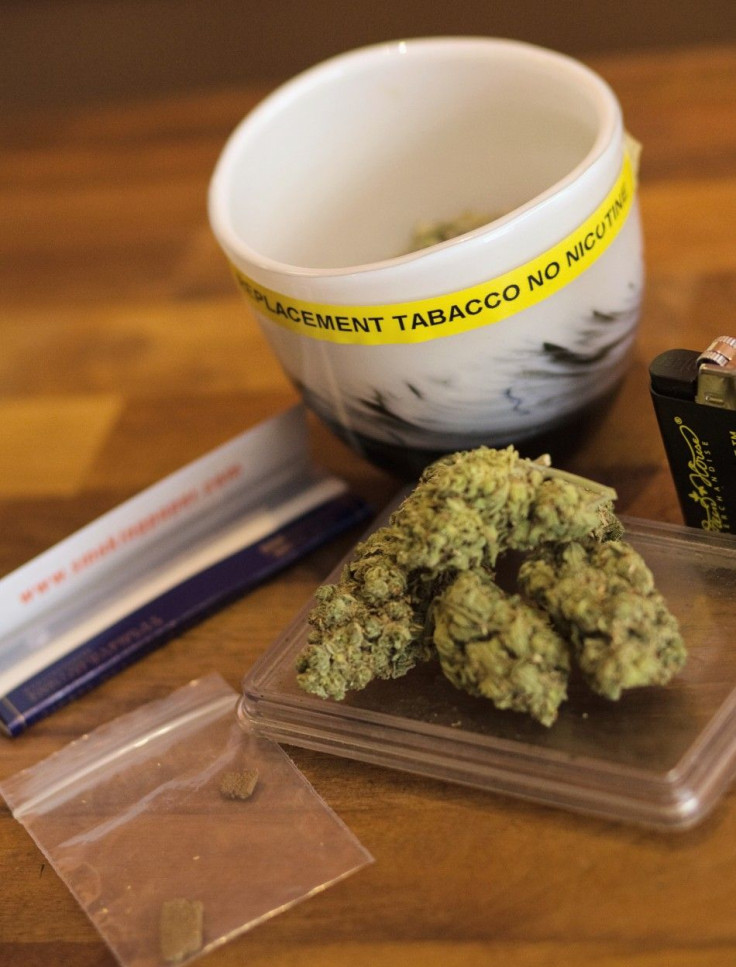Amsterdam Drops Pot Ban For Tourists

The mayor of Amsterdam assured tourists this week that the city’s notoriously liberal views on Marijuana would not change, despite a recent law -- already enforced in the south -- that threatened to shut the city’s famous “coffee shops” to foreigners.
The tourist ban went into effect in three southern provinces earlier this year and was due to expand into Amsterdam next year. But speaking to Dutch daily de Volkskrant, Mayor Eberhard van der Laan said the 220 coffee shops would remain open to all -- a plan made possible under policies set out in the new coalition agreement.
The previous government had introduced controversial legislation mandating a “weed pass” for Dutch residents, who would have to register with their local coffee shops in order to purchase marijuana and smoke in the city. Under the plan, all foreign tourists would be banned from the shops, a move that Amsterdam officials feared would deter some of the estimated 7 million tourists who visit the Dutch city each year.
Van der Laan believes that roughly a third of those visitors frequent Amsterdam’s coffee shops during their stay in the city, and banning them would foster “a revival of the black-market trade.”
“Those 1.5 million people aren’t just going to say, ‘Ok, no weed.’ They’ll be swarming all over the city looking for drugs,” he said. “There will be more street crime, fights over fake drugs and no control over the quality of what is being sold -- everything we have worked toward would be lost to misery.”
The proposed “weed pass” was a reaction by the conservative government to so-called “drug tourism,” which it says has caused major problems along the southern border with France, Germany and Belgian. Some 3.9 million residents of these nations cross the border annually for the sole purpose of purchasing marijuana, and proponents of the “weed pass” say they contribute little to the Netherlands economy.
Critics, however, point to a significant increase in illegal trade and a burgeoning industry for fake drugs and fake passes that has emerged since the policy was put in place along the southern border in May.
The new cabinet still wants to ban all non-residents from the coffee shops, but it conceded that it would only be enforced in cooperation with local councils.
Van der Laan made it clear this week that the situation is different in Amsterdam and will remain so. He also assured the Justice Minister that the city would remain vigilant.
“Selling to minors, selling cannabis that’s too powerful, advertising, causing a public nuisance -- we’ll be keeping a very close watch. And we’ll take a very tough line.”
The Dutch government -- whose push for a stricter drugs policy is led by the Christian Democrats party -- has clamped down on the sale of soft drugs since 2007. Last October, government officials banned what they considered to be highly potent forms of cannabis -- known as "skunk" -- placing these in the same category as hard drugs like cocaine and heroin.
The ruling forced shop owners to remove the reclassified drugs from their shelves.
The Netherlands decriminalized the use of marijuana in 1976, stopping short of legalizing it because international treaties prohibited it from doing so. The cultivation and distribution of drugs at the coffee shops has similarly never been legal, though they have remained a draw card for travelers for decades.
When the debate over the coffee shops heated up last year, Machteld Ligtvoet, spokesperson for the Amsterdam Tourism & Convention Board, said that while the coffee shops are not actively promoted by the organization and are not used in order to attract tourists, “the mere idea that one can buy and use soft drugs here is an attractive aspect of Amsterdam and its famous spirit of freedom."
The city of Amsterdam had long hoped that any upcoming ban would simply fade into a green haze. Now, it appears it has.
© Copyright IBTimes 2024. All rights reserved.






















